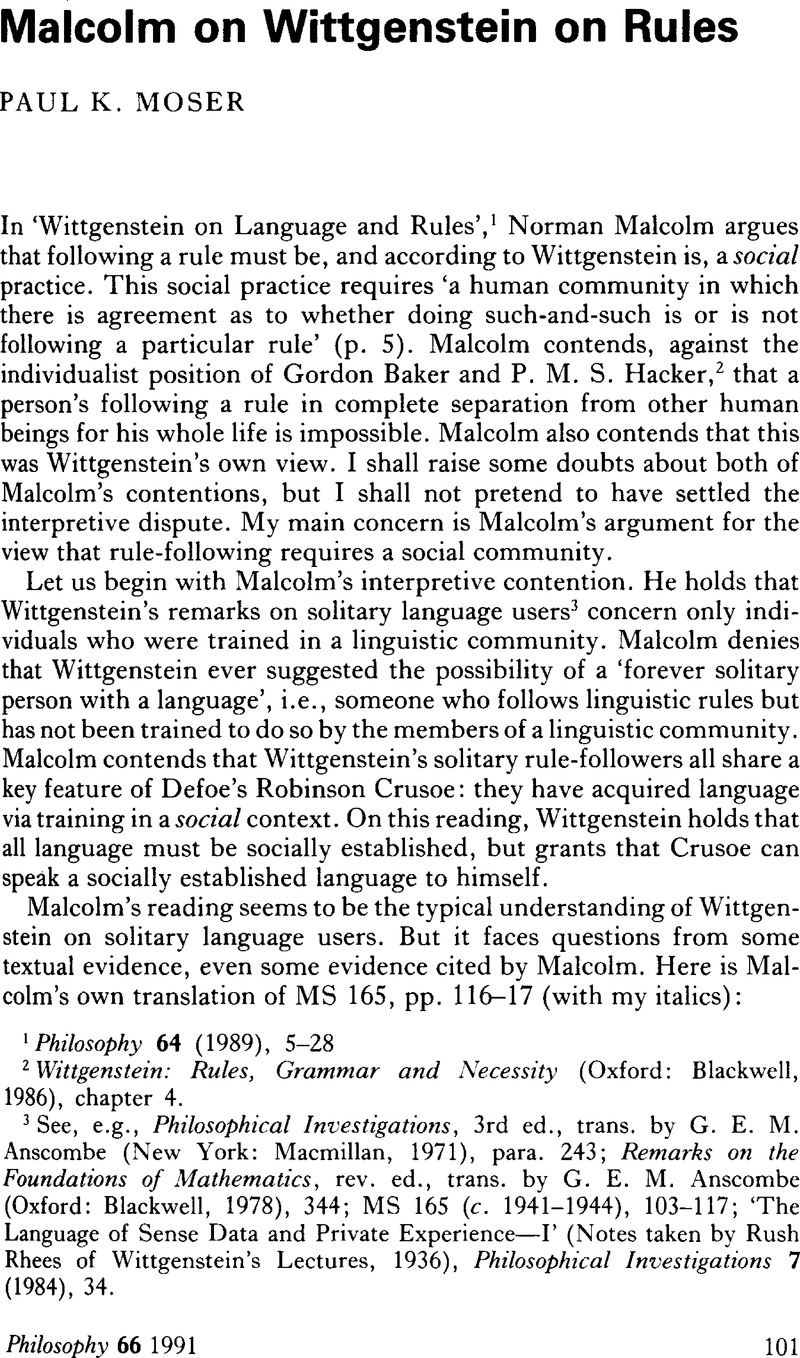Published online by Cambridge University Press: 30 January 2009

1 Philosophy 64 (1989), 5–28Google Scholar
2 Wittgenstein: Rules, Grammar and Necessity (Oxford: Blackwell, 1986), chapter 4.Google Scholar
3 See, e.g., Philosophical Investigations, 3rd ed., trans, by Anscombe, G. E. M. (New York: Macmillan, 1971)Google Scholar, para. 243; Remarks on the Foundations of Mathematics, rev. ed., trans, by Anscombe, G. E. M. (Oxford: Blackwell, 1978), 344Google Scholar; MS 165 (c. 1941–1944), 103–117Google Scholar; ‘The Language of Sense Data and Private Experience—I’ (Notes taken by Rush Rhees of Wittgenstein's Lectures, 1936), Philosophical Investigations 7 (1984), 34.Google Scholar
4 MS 165, 105Google Scholar. Cited also by Baker, and Hacker, , 175.Google Scholar
5 Cf. Remarks on the Foundations of Mathematics, 344.Google Scholar
6 See Malcolm, also, Nothing Is Hidden (Oxford: Blackwell, 1986), 158–159Google Scholar: ‘… in order for there to be rules, different people who have had approximately the same training must agree in their application of the rules to new cases…. [T]heir meaning is fixed by the customary agreement in action of those who have been given the ordinary explanations and examples’.
7 Remarks on the Foundations of Mathematics, 328–329.Google Scholar
8 Remarks on the Foundations of Mathematics, 331.Google Scholar